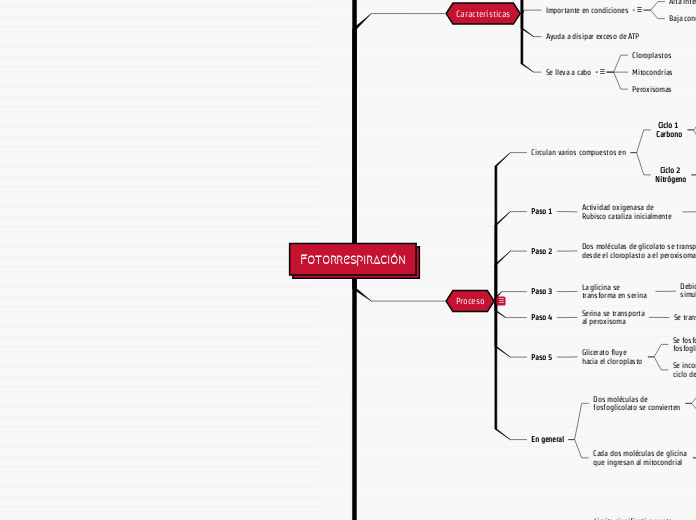によって Aide Rios 3年前.
812
Fotorrespiración
La fotorrespiración es un proceso que implica la captación de oxígeno y la liberación de dióxido de carbono en las plantas, particularmente en condiciones de alta luminosidad y temperaturas elevadas.

によって Aide Rios 3年前.
812

もっと見る

To name your story, you have to think about the overall message and what you want your audience to understand from the story. Also, make it relevant and easy to remember.
Mejora la tolerancia a la sequía y la salinidad
Desarrollo de un medio para reducir la fotorrespiración
Adaptadas
Soleados o secos
Cálidos
The middle of the story is where you add layers of complications that will lead to the end. Reveal more about the character's journey. Did their personality go through changes? How did they overcome the challenges? And as you build up the story’s central conflict, make it more personal to that character. Also, from the middle act, you have to lead into the final act.
Un NAD + se reduce a NADH
Se produce
Amoniaco
CO2
Serina
Un dióxido de carbono
Un molécula de 3-fosfoglicerato
Se incorpora al ciclo de Calvin
Se fosforila a 3-fosfoglicerato
Se transforma en glicerato
Debido a la liberación simultánea de CO2
Se transporta a la mitocondria
Se convierte en glicina
El O2 se une a RuBP y forma fosfoglicolato
There wouldn't be any tension and excitement in your story if there weren't any obstacles in your character's way.
Regresa en una molécula de amoníaco
Sale del cloroplasto en una molécula de glutamato
Devuelve en una molécula de glicerato
Sale del cloroplasto en 2 moléculas de glicolato
In the beginning of the story (or the exposition), you will need to introduce the setting and characters. You might also want to introduce the main conflict. This part of the story is important because it gives the reader necessary background information and maybe even a first insight into a character’s personality.
